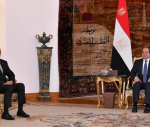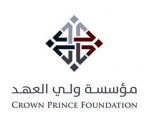You are here
Lebanon election postponed to May 7
By AFP - Apr 30,2014 - Last updated at Apr 30,2014
BEIRUT — Lebanon’s parliament failed Wednesday to elect a president, for a second time in a week, raising fears the post will remain vacant amid tensions over neighbouring war-torn Syria.
The parliament failed to reach the quorum needed to vote for a successor to incumbent President Michel Sleiman, after the Damascus ally Hezbollah bloc refused to attend Wednesday’s session.
Parliament speaker “Nabih Berri has set the date of May 7 as a new date to hold a parliamentary session, given the lack of quorum on Wednesday”, said the official National News Agency.
Deputies are faced with a choice between Samir Geagea, a fierce opponent of the Syrian government and its ally Hizbollah, and Michel Aoun, who is backed by the Lebanese Shiite movement.
The animosity between the pair dates back to the civil war that ravaged Lebanon from 1975 to 1990.
Sleiman’s term expires on May 25 and the parliament has until then to elect his successor. But if it fails to do so, the government will assume all executive powers, a scenario Lebanon endured between 1988 and 2007.
Over the years, the choice of president in Lebanon has been dictated by foreign powers, particularly Syria, which dominated the Mediterranean country for nearly three decades.
Despite the withdrawal of its troops from Lebanon in 2005 and its own three-year conflict, Syria still has a say in Lebanon, largely through Hezbollah, whose forces have been fighting alongside those of the Damascus regime.
Hizbollah’s arsenal and its involvement in the Syrian war are the main bones of contention between Lebanon’s rival political camps supported by Damascus and Tehran on one side, and Washington and Riyadh on the other.
Analysts say that this lack of consensus between the factions and their foreign sponsors is likely to leave Lebanon without a president beyond May 25.
“I am inclined to assume that we will not have presidential election by the end of... the constitutional period” because the Hizbollah camp cannot accept Geagea and its March 14 rivals cannot accept Aoun, said Hilal Khashan, political science professor at the American University of Beirut.
“Lebanon does not feature prominently neither for Saudi Arabia nor for Iran right now,” said Khashan. “Even the US is not even interested in Lebanon, but in other issues in the region.”
The presidency is by tradition reserved for a candidate from the Christian Maronite community, in a multi-confessional system unique in the Arab world.
But the post is largely ceremonial, and Khashan said it is thus not a “burning issue” for Riyadh and Tehran, already opposed to each other over Syria, Yemen and Iran’s nuclear programme.
Related Articles
BEIRUT — Thousands of Lebanese rallied at the presidential palace outside Beirut on Sunday in a show of support for Christian politician Mic
BEIRUT — Lebanese lawmakers ended a two-year political vacuum on Monday by electing as president ex-army chief Michel Aoun, who promised to
Beirut — Lebanon's powerful ex-premier Saad Hariri is expected to endorse Hizbollah ally Michel Aoun for president, a post that has been vac
















